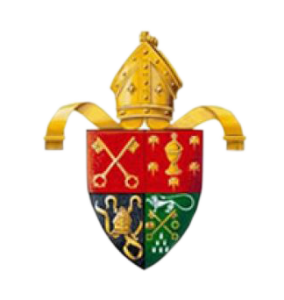PRESS RELEASE
BISHOP SAYS PANDEMIC MAY LEAD TO A BETTER, LEANER, MORE AUTHENTIC FAITH
The Right Reverend Michael Burrows, Bishop of the Church of Ireland United Dioceses of Cashel, Ferns and Ossory, in his presidential address to the 2020 Diocesan Synod being held online today, Saturday, 28th November 2020, spoke of the three lessons that may be learned from the COVID-19 pandemic.
Pointing out that ‘Advent is all about crisis’ he went on to say that ‘in the midst of crisis we know what our faith is worth’.
“We have proved the worth of our faith and worship by the extraordinary imagination, energy, resilience and creativity with which we have transferred things online,” he said, “and also in the way we have reconnected with people in new ways and the way in which pastoral mission has never ceased.”
He also spoke of the Church of Ireland’s over-dependence on church buildings and how online worship during lockdown has given us a trial run in ‘how we do without the great buildings’.
“It’s a kind of love-hate relationship we have with them,” he said. “We keep saying we all know we have far too many, that they drag us down, that they cost too much but we love them all and we wouldn’t want to be rid of any of them and so we are forever caught in the buildings preoccupation and dilemma. The pandemic has, however, whether we like it or not, given us a trial run and an instructive experience in how we, as it were, do without the great buildings.”
His third point centred round how the pandemic has re-reminded us that we are living in the midst of mortality.
“Advent is normally a big demonstration that we all live in the fickle power of the market but this particular year we’ve a new sense of the last things. Certainly, we hope that a vaccine is coming, that better times are ahead but never as of late have we been so re-reminded of the frailty of human nature… It is no harm occasionally to know anew that we are fearfully and wonderfully made and that, in the midst of life we are in death and to whom can we turn for help but only to a merciful God.
It is a truth that it is often pestilence, war and test that somehow has strengthened faith in the long term even when we are terrified it has weakened the economic basis and the essential structures and the operating fabric of the church almost beyond measure yet somehow faith comes out the better, leaner and more authentic.”
Ending his address, he spoke of how we should look forward with hope and pointed out, in relation to the crib, that the traditional way we put the key figures in it each year involves social distancing.
“They are all in their own space and they are all challenged to respond to Christ themselves without others doing the singing and the revelling and the carolling for them,” he said.
He concluded with the following:
“May this Christmas in the intimacy and austerity, to some extent of it, be a season to respond to Christ individually like the socially distanced crib figures and not depending on others, apart from the angels, to make the music for us.”
ENDS
For more information contact:
Margaret Hawkins
Diocesan Communications Officer
085 8010 720

